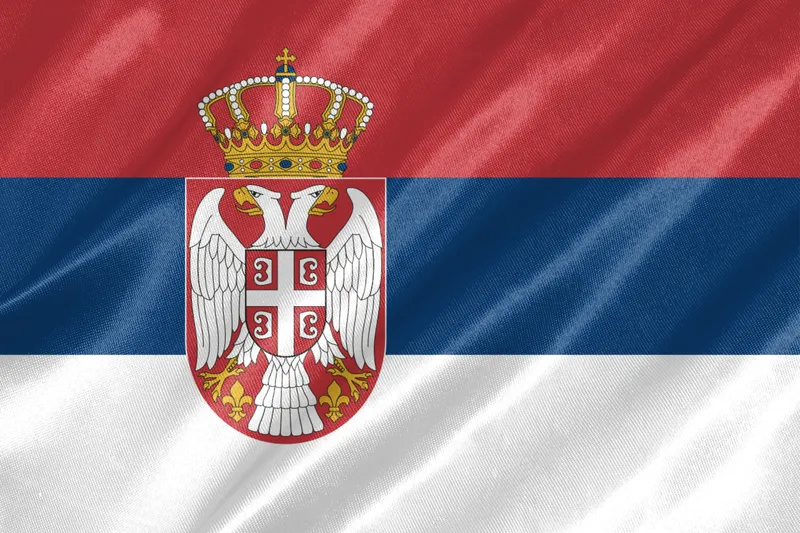Serbia and China have signed a memorandum of understanding for construction of two sections of Serbia’s Corridor 11.
The MoU was inked in during Serbian Prime Minister Aleksandar Vucic’s visit to the Chinese capital Beijing last week.
Serbia’s Tanjug news agency reported that Vucic said the deal was worth around €209 million and included construction of the 18km Surcin-Obrenovac bridge. Corridor 11 runs from the Serbian capital Belgrade southwest to the border with Montenegro, another member state of
November 30, 2015
Read time: 2 mins
Serbia and China have signed a memorandum of understanding for construction of two sections of Serbia’s Corridor 11.
The MoU was inked in during Serbian Prime Minister Aleksandar Vucic’s visit to the Chinese capital Beijing last week.
Serbia’s Tanjug news agency reported that Vucic said the deal was worth around €209 million and included construction of the 18km Surcin-Obrenovac bridge. Corridor 11 runs from the Serbian capital Belgrade southwest to the border with Montenegro, another member state of the former Yugoslavia that dissolved after a brutal war in the late 1990s.
Vucic told Serbia's state broadcaster RTS that the arrangement with China was "a very favourable credit arrangement with a lengthy grace period" that was based on a “dramatically” lower construction cost.
The prime minister added he believed that the second section, from Cacak to Pozega, would be finished by the end of 2018 - connecting with Uzice in western Serbia, and extending farther toward Montenegro.
Earlier this year, Serbian vice president Zorana Mihajlovic said that the Corridor 10 motorway is expected to be completed by the end of 2016 and that sufficient funding has been secured. She noted that in the past year, 58km of the motorway was been paved and another 120km is expected to be paved this year. Greek company Terna is the contractor.
Corridor 10 is one of the most important pan-European transport corridors that runs through Serbia to connect Austria, Hungary, Slovenia, Croatia, Bulgaria, Macedonia and Greece. The goal is to create a transport system within Serbia that will be compatible with that of the European Union.
Meanwhile, Serbian news website B92 reported last week that the prime minister of Montenegro said China will invest in two major road projects. Milo Dukanovic, said China Roads and Bridges Corporation and the China Communications and Construction Company will work on the Bar-Serbian border motorway project. The first part will be financed with an €800 million loan from the Chinese State Bank.
The MoU was inked in during Serbian Prime Minister Aleksandar Vucic’s visit to the Chinese capital Beijing last week.
Serbia’s Tanjug news agency reported that Vucic said the deal was worth around €209 million and included construction of the 18km Surcin-Obrenovac bridge. Corridor 11 runs from the Serbian capital Belgrade southwest to the border with Montenegro, another member state of the former Yugoslavia that dissolved after a brutal war in the late 1990s.
Vucic told Serbia's state broadcaster RTS that the arrangement with China was "a very favourable credit arrangement with a lengthy grace period" that was based on a “dramatically” lower construction cost.
The prime minister added he believed that the second section, from Cacak to Pozega, would be finished by the end of 2018 - connecting with Uzice in western Serbia, and extending farther toward Montenegro.
Earlier this year, Serbian vice president Zorana Mihajlovic said that the Corridor 10 motorway is expected to be completed by the end of 2016 and that sufficient funding has been secured. She noted that in the past year, 58km of the motorway was been paved and another 120km is expected to be paved this year. Greek company Terna is the contractor.
Corridor 10 is one of the most important pan-European transport corridors that runs through Serbia to connect Austria, Hungary, Slovenia, Croatia, Bulgaria, Macedonia and Greece. The goal is to create a transport system within Serbia that will be compatible with that of the European Union.
Meanwhile, Serbian news website B92 reported last week that the prime minister of Montenegro said China will invest in two major road projects. Milo Dukanovic, said China Roads and Bridges Corporation and the China Communications and Construction Company will work on the Bar-Serbian border motorway project. The first part will be financed with an €800 million loan from the Chinese State Bank.







